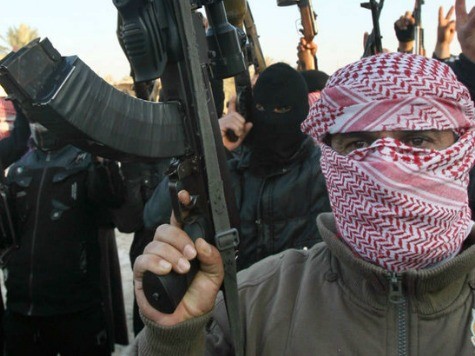Terror group Al-Qaeda has finally found the limit of its own brutality in observing ultra-violent spin-off the Islamic State, and has banned it’s own followers from beheading captives in a statement from a senior cleric of the group as part of a battle for Islamic “hearts and minds”.
Nations worldwide reacted with revulsion to the brutal beheading of captured soldiers and civilians by the Islamic State, including Brits Alan Henning and David Haines, but now it’s the turn of an unlikely extremist jihad group to denounce ISIS.
Conforming to it’s stereotype of issuing long, complex messages and edicts to its followers in contrast to the snappy social-media output of the Islamic State, Al-Qaeda released a 43-minute statement on the matter by Nasr bin Ali al-Ansi, a senior commander of the organisation.
Referring to ISIS without actually mentioning them by name, the message may seem strange to those who remember previous Al-Qaeda atrocities including the World Trade Centre Attack and beheadings of captives in the past. He said: “No doubt, some of our brothers were affected by seeing scenes of beheadings that were spread recently. We do not accept and we strongly reject them.
“Recording such acts, and spreading them among the people in the name of religion and jihad, we see as a big mistake. It is not acceptable, no matter the justification”. Referring to the now dead former leader of Al-Qaeda and juggernaut of global Jihad, Osama Bin Laden, al-Ansii continued: “Therefore, I assert that whoever does such actions [beheadings], he has violated the command of Sheikh Osama”.
The Times refers to a previous communication by Al-Qaeda that clarifies the position. It read “we are in a media battle in a race for the hearts and minds of our Umma [Islamic People]… We can kill the captives by bullet”.
Al-Qaeda has found itself being quickly overtaken as the worlds most notorious terror group over the course of this year, after Abu Bakr al-Baghdadi defected from the group to form the Islamic State, and declare the first Caliphate since the collapse of the Ottoman Empire at the start of the last century. ISIS and Al-Qaeda have been sporadically at war ever since, but in some respects the schism has forced Al-Qaeda to modernise.
Responding to the flood of modern, relevant, and easy to digest propaganda disseminated on Twitter, Facebook, and other social networks by the Islamic State, Al-Qaeda has recently released a glossy magazine. Named after Dabiq, a small town where Islamic scholars have prophesied the West will be defeated at the hands of jihadist fighters, it carries long, theologically charged articles about global jihad and the evils of the west.
Although Al-Qaeda has made efforts in past months to imitate the more sophisticated propaganda films produced by the Islamic State, it remains keen to stand apart from its more violent progeny, and to attract back fighters who have defected, of which the apparent ban on beheading is part.

COMMENTS
Please let us know if you're having issues with commenting.